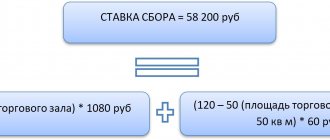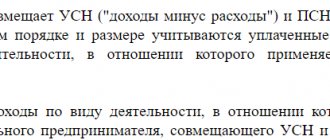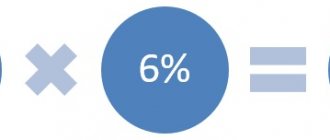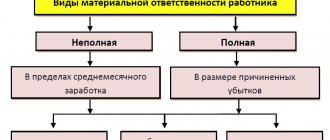Who should pay the simplified tax system for 2020?
All persons, legal entities and individuals in the status of individual entrepreneurs, who apply a simplified system when taxing their business need to pay a single tax according to the simplified tax system. This system is presented as an alternative to the main mode. Profit tax for legal entities or personal income tax for individual entrepreneurs, VAT and partially property tax are replaced under the simplified tax system with a single tax, which is calculated at the rate:
- 6% and below, if income is chosen as the object of taxation;
- 15% and lower if the object is income reduced by the amount of expenses.
To be able to apply the simplified tax system, economic entities must meet certain requirements in terms of annual income, average number of employees, formation of authorized capital, etc. You can read about all this in detail here. In addition, the simplified tax system cannot be used when carrying out certain types of activities, such as insurance or banking.
So, if a business entity has applied a simplified tax regime since January 1, 2018, or since registration in 2018, based on a tax application submitted, and has remained within the specified criteria for a year, then at the end of the year it needs to transfer the tax to the state treasury. It must be taken into account that in addition to this, advances on a single tax had to be paid during the year. We will tell you in the next section what deadlines you need to meet with the payment of advances and the final payment.
VAT for an individual entrepreneur on the simplified tax system
In general, in the general case, value added tax (VAT) is also not paid by individual entrepreneurs, but in a number of cases individual entrepreneurs still need to pay it. This situation may arise in the following cases:
- If the individual entrepreneur purchased goods of foreign origin from the manufacturer;
- If the entrepreneur has leased or purchased state and municipal property;
- If transactions were carried out under agreements of trust management of property, joint ventures or simple partnership with the participation of the individual entrepreneur;
- If the entrepreneur has become an intermediary;
- If the individual entrepreneur issued an invoice to the buyer with VAT allocated from the total amount.
Payment of VAT for individual entrepreneurs on Simplified is made in the next month after the quarter in which the invoice was issued.
What are the deadlines for paying tax according to the simplified tax system for the year?
The simplified tax system is calculated on an accrual basis from the beginning of the year. At the end of each quarter, the advance tax payment must reach the budget no later than:
The deadlines for paying the simplified tax system for the year (final payment) vary depending on the category of taxpayer:
- Legal entities must complete the application by March 31st. In 2020, this day falls on a Sunday, so you will need to pay the budget for 2018 before April 1.
- Individual entrepreneurs must make the last payment for 2020 by 04/30/2019; there will be no transfers for them.
The tax amount is calculated in the tax return submitted at the end of the year. If, based on its results, the amount of calculated and paid advances turns out to be greater than the amount of the final payment, then an overpayment of tax arises, which can either be returned or offset against future payments.
Deadlines for reporting and paying taxes and individual entrepreneur contributions in 2018
The state gives a small business registered as an individual enterprise (IE) a number of advantages over other organizational and legal forms, in particular a simplified form of reporting and favorable sanctions for tax violations. In this case, the individual entrepreneur bears personal property liability to regulators for financial debts. That is, the claimants will consider not only the property that is involved in business activities (equipment, materials, etc.), but also the private property of the businessman: from real estate to television. By neglecting the deadlines for paying taxes, an individual entrepreneur risks being subjected to not only administrative, but also criminal penalties.
All private entrepreneurs who conduct business in the Russian Federation are obliged to promptly:
- submit tax and statistical reporting;
- pay legally established taxes and fees to the state budget.
It’s better to pay taxes, don’t risk personal property
Tax and statistical reporting, as well as deadlines for paying taxes and contributions, depend on the tax regime and the availability of employees of an individual entrepreneur.
Microbusinesses initially - when registering an individual entrepreneur - need to think about the taxation system. This choice directly depends on the type of activity that the businessman intends to engage in, the planned volume of turnover and income, the number of employees, as well as regional benefits for small businesses.
Please note: if, when registering a business, an individual entrepreneur did not declare that he would work under one of the preferential tax regimes, the Federal Tax Service will by default establish a general taxation system (OSNO) for him. Therefore, the main step towards starting your own business will be the correct choice of tax regime.
Before deciding on the tax regime, you can calculate the planned income, costs, taxes, fees and make your choice
Nuances of tax payments in 2020 under the general regime
A private business under the general taxation regime (ORN or OSNO) declares and pays the following taxes:
- VAT - if there were transactions that are subject to VAT, and the amount of revenue for the reporting quarter amounted to more than 2 million rubles;
- Personal income tax - if income was received during the reporting tax period;
- Personal income tax - if the individual entrepreneur has employees on his staff.
Payments for value added tax must be received by the Federal Tax Service at the place of registration of the individual entrepreneur. When calculating, the amount indicated during the quarterly tax declaration is taken, which is divided by 3. This is the amount of the monthly VAT payment. Payments must be made every month by the 25th.
There are exceptions to this rule: individual entrepreneurs under preferential regimes who are not required to pay tax contributions for VAT, but at the same time issued invoices to their counterparties, allocating VAT, must transfer the full amount of tax once a quarter, before the 25th. At the same time, they are required to maintain accounting records. reporting according to the Invoice Journal.
Calculation and payments for personal income tax are based on the 4-personal income tax declaration, according to which tax authorities calculate and submit requirements for advance payments.
An individual entrepreneur is required to pay personal income tax advances within the specified time frame:
- first half of the year - until July 15;
- third quarter of the year - until October 15;
- fourth quarter - until January 15.
The law sets deadlines for paying taxes
Reporting rules
An individual entrepreneur who works for ORN is required to comply with standard tax and accounting standards:
- Systematically maintain a book of income and expenses of a private enterprise.
- Timely submit the final annual tax return 3-NDFL on the income of individual entrepreneurs to the Federal Tax Service at the place of registration.
- Upon receipt of your first income, within 5 working days, create a 4-NDFL declaration with the figures of your expected income.
- Report VAT returns quarterly. It should be noted that the declaration for this tax is sent for verification only through the electronic document management of the Federal Tax Service of the Russian Federation (EDF).
It should be taken into account that the 3-NDFL declaration is submitted even if the businessman did not conduct his business and there was no movement of funds in the individual entrepreneur’s current account.
When a private enterprise closes before the end of the tax period and an application to terminate the activities of an individual entrepreneur is submitted to the Federal Tax Service, the personal income tax return must be submitted to the tax controller within 5 working days.
Please take into account one more nuance when preparing reports for 4-NDFL: an individual entrepreneur should not give comments to the Federal Tax Service on the calculation of projected income. Even if a businessman makes a significant mistake in his planned revenue, he is not responsible for this. In the case when, after submitting the 4-NDFL, the individual entrepreneur understands that his actual income will be higher (or lower) than the planned figure by more than 50%, the entrepreneur simply must submit the updated figures to the Federal Tax Service. Within the regulated period of time - 5 working days - the inspection will calculate the advance payments. If there is a shortfall in payments, you will have to pay extra. The overpaid advance will be equalized based on the results of the year according to the 3-NDFL declaration.
Photo gallery: reporting forms for ORN - declarations, accounting book and journal for accounting for agricultural income
Sample Book of Income and Expense Accounting
The VAT return is submitted only in electronic form
Sample of filling out the 3-NDFL declaration
An example of filling out a prospective 4-NDFL declaration
Everyone who issues VAT to their counterparties must keep an invoice log, and individual entrepreneurs with preferential treatment are no exception.
Table: reporting regulations according to OSNO
| Tax | Reporting form | Report submission deadline | Deadline for submitting reports for 2018 | Tax payment deadline | Nuances |
| Value added tax | VAT declaration | Until the 25th of the first month of the next quarter | I quarter—04/25/2018 | Monthly, in equal amounts, until the 25th | There are VAT transactions, revenue for the reporting quarter is from 2 million rubles. The declaration is submitted only via EDI. The standard rule of the Federal Tax Service of the Russian Federation is that when the date of submission of the declaration falls on a weekend, the deadline is postponed to Monday of the next week. |
| II quarter - 07/25/2018 | |||||
| III quarter—10/25/2018 | |||||
| IV quarter - 01/25/2019 | |||||
| Invoice journal | Until the 20th of the month of the next quarter | I quarter—04/20/2018 | Quarterly, before the 25th day after the reporting quarter | The responsibility of intermediaries who are not considered VAT payers, but allocate VAT to accounting. documents for the provision of services | |
| II quarter—07/20/2018 | |||||
| III quarter - 10/22/2018 | |||||
| IV quarter - 01/21/2019 | |||||
| Personal income tax | Declaration 3-NDFL | Until April 30, once a year | 04/30/2018 (for 2017), 04/30/2019 (for 2018) | until 07/16/2018 / until 10/15/2018 / until 01/15/2019 | Payments - based on the request from the Federal Tax Service based on 4-NDFL |
| Declaration 4-NDFL | Separately | Within 5 days from receipt of income | Forward Declaration | ||
| Land, transport and property tax (as a sole proprietor) | No | Until the first of December, every year | No | until 01.12.2018 | Based on a notification from the Federal Tax Service |
| Water tax (as FL) | No | Until the 20th, after each quarter | No | 20.04.2018 / 20.07.2018 / 22.10.2019 / 21.01.2019 | If you have property |
How does an individual entrepreneur report and pay contributions?
When a private entrepreneur hires employees, he is obliged to submit information about the formation of a hired staff to the Social Insurance Fund within 10 working days, and also register as an insurer. Registration takes place within 5 working days. This can be done on the government services portal or go to the territorial Social Fund. insurance. The rule applies to all tax regimes: both OSNO and special ones. If the registration deadlines are violated due to the fault of the individual entrepreneur, the business may be fined; the minimum fine is 5 thousand rubles.
Please note: starting from 2020, it is not necessary to submit an application and information about employees to the Pension Fund. This will be done by the tax service as part of an interdepartmental exchange.
When submitting reports on individual entrepreneur employees to regulatory authorities, you need to know several nuances:
- The report on the number of employed takes into account not only permanent employees, but also those who perform temporary work. If a person has worked at least 1 day, he is added to the list.
- The employee register should also include maternity leavers and those on vacation or sick leave.
- From the moment the number of staff reaches 25 people, reporting to the Pension Fund of the Russian Federation is transferred to electronic document management. All reports in this case must be endorsed with an enhanced qualified electronic signature of the individual entrepreneur.
In 2020, the bulk of insurance reporting and contributions for hired employees go through the Federal Tax Service of the Russian Federation, the FSS and the Pension Fund of the Russian Federation only have control functions.
The reporting of a private enterprise that has hired personnel is submitted to 3 departments: the Federal Tax Service, the Pension Fund of the Russian Federation and the Social Insurance Fund.
Each reporting form has a deadline for submission. To avoid queues, to avoid being late with your change and to avoid getting fined, report in advance.
Public services
https://www.gosuslugi.ru/
Table: deadlines for reporting and payments for individual entrepreneurs’ personnel (to the Pension Fund of Russia, Social Insurance Fund, Federal Tax Service)
| Reporting form | Term | Deadline for submitting reports for 2018 | Due date for payment of fees | Where are the reports submitted? | Nuances |
| Report according to the SZV-M form | Until the 10th of every month | 01/10/2018, 02/12/2018, 03/12/2018, etc., every month | No | Pension Fund | Personalized reporting |
| Calculation according to 6-NDFL | Last day of the 1st month of the quarter | 30.04.2018, 31.07.2018, 31.10.2018, | No | Inspectorate of the Federal Tax Service | When the date falls on a weekend, the reporting deadline is moved to Monday of the following week. |
| Unified calculation of insurance premiums | Last day of the 1st month of the quarter | 30.04.2018, 31.07.2018, 31.10.2018 | Until the 15th, every month. For self-employed individual entrepreneurs: until December 31, 2018 - fixed payment for 2018; 07/01/2019 – 1% of the amount of income ˃ RUB 300,000. | Inspectorate of the Federal Tax Service | |
| Calculation of contributions for compulsory insurance against industrial accidents and occupational diseases | Until the 25th day (for electronic form) and the 20th day (for paper form) of 1 month of the next quarter | (paper form): 04/20/2018, 07/20/2018, 10/22/2018 | Inspectorate of the Federal Tax Service | ||
| Average number of employees | Until January 20 next year | 21.01.2019 | No | Inspectorate of the Federal Tax Service | |
| SZV-Experience | Until March 1 next year | 01.03.2019 | No | Pension Fund | Report with generalized data on employees’ length of service |
| Certificates 2-NDFL | Until April 1 next year | 01.04.2019 | No | Inspectorate of the Federal Tax Service |
Video: insurance premiums for individual entrepreneurs for themselves in 2020
Payments to the budget from individual entrepreneurs under preferential tax regimes
Special tax regimes for entrepreneurship are characterized by simplified, minimized reporting:
- All preferential tax systems exempt private businesses from income tax and value added tax, while individual entrepreneurs may be required to report VAT in cases where the individual entrepreneur issues invoices, allocating the tax to the accounting account. documents when selling your goods or providing services.
- Individual entrepreneurs under preferential regimes do not pay personal income tax; taxation takes into account only income from the business activities of a private entrepreneur.
- If a private enterprise does not have hired employees, it does not keep accounting records and does not submit accounts. reporting (an accounting book is sufficient).
- Microbusinesses do not make property tax payments to individual entrepreneurs if the property is used by them to conduct business.
There is one point that, although it does not affect the reporting of individual entrepreneurs, is worth paying attention to, as it may affect tax payments. The legislation of the Russian Federation and regional entities establishes a list of commercial objects, the tax base for which is determined as the cadastral value. This register is adjusted annually; this is done by the executive power of the constituent entity of the Russian Federation where the real estate is located. This list expands every year. Check on the official website of the regional administration to see if your property is included in it.
Payment of taxes on the simplified tax system and UTII
Under two preferential regimes - the simplified system (STS) and the Unified Agricultural Tax (USAT) - reporting is submitted to the Federal Tax Service once a year. Under the simplified tax system - until April 30, for farm tax - until March 31 based on the results of the past calendar year. Payments based on the results of the year must be received by the tax service before submitting a declaration under the appropriate regime.
For these two taxes, advance payments are provided, which must be paid to the budget by the 25th day after the end of each quarter.
When an individual entrepreneur decides to cease his activities as an entrepreneur on the simplified tax system or unified agricultural tax, he must:
- Notify the Federal Tax Service of your decision by submitting the appropriate notification (form No. 26.2–8). This must be done within 15 days from the date of closure of the private business.
- Submit the simplified taxation system (USN) declaration and pay the simplified taxation system (USN tax), the deadline for this is the 25th of the next month.
Please know: you do not need to submit reports if an entrepreneur switches from the simplified tax system to UTII or to the patent system, since this is not a fact of termination of simplified activities. Also, the Federal Tax Service does not require standard reporting when liquidating a private business.
Video: simplified taxes - what, where and how to pay
Specifics of individual entrepreneurs on a single tax on imputed income
Unlike other special regimes, UTII declarations take place quarterly. It is necessary to report on the imputation before the 20th of the next tax period (calendar quarter).
Payments for UTII are made 4 times a year: until January 25, April 25, July 25 and October 25.
Another feature of this fee is that when terminating an activity that is subject to the imputed tax, the entrepreneur needs to notify the Federal Tax Service within a shorter period of time - only 5 days are given to submit an application to the service inspectors. At the same time, the UTII declaration is submitted to the tax authorities within the standard quarterly reporting period.
Patent regime
The patent regime does not provide for the declaration of income at all. This is the easiest tax regime for business in terms of accounting and reporting.
When obtaining a patent, it should be noted that the entrepreneur must comply with the terms for the purchase of rights:
- If the patent is taken for a period of 6 to 12 months, you can pay for it in two payments: one before the expiration of ninety days from the date of its validity, the second before the end of its term.
- If an individual entrepreneur chooses a patent for a period of less than 6 months, the payment must be repaid before its termination.
It’s worth taking into account: the main page of the portal of the Federal Tax Service of the Russian Federation always displays the current tax calendar with the deadlines for submitting reports and paying taxes and fees. We recommend checking it periodically when conducting business.
Table: declaration and payment terms under preferential regimes in 2018
| Tax | Reporting form | Term | Submission of reports in 2020 / deadline | Tax payment deadline | Nuances |
| Land, transport and property tax (as a sole proprietor) | No | Until the first of December, every year | No | until 01.12.2018 | For all modes. Based on a notification from the Federal Tax Service. |
| Water tax (as FL) | No | Until the 20th, after each quarter | No | 20.04.2018 / 20.07.2018 / 22.10.2019 / 21.01.2019 | For all tax regimes if owned |
| Value added tax | Invoice journal | Until the 20th of the month of the next quarter | I quarter - 04/20/2018 | No | Only for certain businesses. The obligation of individual entrepreneurs under preferential regimes who are not VAT payers, but allocate VAT in their invoices. |
| II quarter - 07/20/2018 | |||||
| III quarter - 10/22/2018 | |||||
| IV quarter - 01/21/2019 | |||||
| Simplified tax (USN) | Declaration of the simplified tax system | Until April 30 | 04/30/2018 (for 2017), 04/30/2019 (for 2018) | Based on the results of 2020 - until April 30, 2018. Advance payments for 2020: until 04/25/2018 / 07/25/2018 / 10/25/2018 | When using the simplified tax system based on a patent, the declaration is not submitted. |
| Unified Agricultural Tax (USAT) | Declaration of Unified Agricultural Tax | Until March 31 | 31.03.2018 | Based on the results of 2020 - until 04/02/2018. Advance payments for 2020: until 04/25/2018 / 07/25/2018 / 10/25/2019 | |
| Unified tax on imputed income (UTII) | Declaration of UTII | Until the 20th day of the first month of the next quarter | I quarter - 04/20/2018 | Until 04/25/2018 / 07/25/2018 / 10/25/2018 / 01/25/2019 | |
| II quarter - 07/20/2018 | |||||
| III quarter - 10/22/2018 | |||||
| IV quarter - 01/21/2019 |
What is the liability for late payment under the simplified tax system for the year?
If the deadlines for simplified taxation payments for 2020 are violated, the taxpayer will be charged penalties determined as follows:
- for legal entities - in the amount of 1/300 of the refinancing rate established by the Central Bank for each day of delay for the first 30 days and in the amount of 1/150 for each day starting from the 31st day;
- for individual entrepreneurs - in the amount of 1/300 of the refinancing rate for each day of delay.
If non-payment or incomplete payment of the single tax is revealed during an audit, then there will be a fine. Such a fine can be 20 or 40% of the tax amount, depending on the absence or presence of intent that led to this violation (Article 122 of the Tax Code of the Russian Federation). This may result in administrative liability for company officials, also expressed in the form of fines.
IMPORTANT! Tax officials can fine an organization or entrepreneur only for non-payment or incomplete payment of taxes at the end of the year. No fines are assessed for the amount of unpaid advances (clause 3 of Article 58 of the Tax Code), but penalties are charged on them.
What taxes do individual entrepreneurs working under special tax regimes pay?
An individual entrepreneur operating under a special tax regime must comply with the deadlines for paying taxes established by the tax legislation of the Russian Federation:
| Tax system | Tax payment deadline | Normative act |
| Simplified taxation system (STS) | Advance payments before the 25th day of the month following the reporting quarter: · April 25, 2020 · July 25, 2020 · October 25, 2020 · April 30, 2020 | Art. 346.21 Tax Code of the Russian Federation |
| Unified tax on imputed income (UTII) | By the 25th day of the month following the reporting quarter: · April 25, 2020 · July 25, 2020 · October 25, 2020 · January 25, 2020 | Article 346.32 of the Tax Code of the Russian Federation |
| Unified Agricultural Tax (USAT) | For 2020: until April 2, 2020 For 2020:
| Article 346.9 of the Tax Code of the Russian Federation |
| Patent tax system (PTS) |
| Art. 346.51 Tax Code of the Russian Federation |
srok_uplaty_usn_za_2018_god.jpg
Related publications
How should the simplified tax system be paid for 2020? The timing of the transfer of “simplified” tax is regulated by the Tax Code in paragraph 7 of Art. 346.21. Delay in settlements with the budget for “special regime” taxes is fraught for business entities with the accrual of penalties or fines. If we are talking about late payment of advance tax payments, then tax authorities can only use penalties for each day of delay as a measure of influence on the taxpayer. If a business entity is late in paying taxes, the penalty will be a fine in the amount of 20% of the amount of arrears (Article 122 of the Tax Code of the Russian Federation).
Results
The terms for making advance payments under the simplified tax system for individual entrepreneurs and legal entities are the same, the difference arises only in annual payments. For individual entrepreneurs, the deadline for paying tax at the end of the year and submitting a declaration for the simplified tax system has been shifted to a later date compared to the deadline established for legal entities.
See also our calendar for an accountant under the simplified tax system for 2020.
Sources:
Tax Code of the Russian Federation
You can find more complete information on the topic in ConsultantPlus. Full and free access to the system for 2 days.







